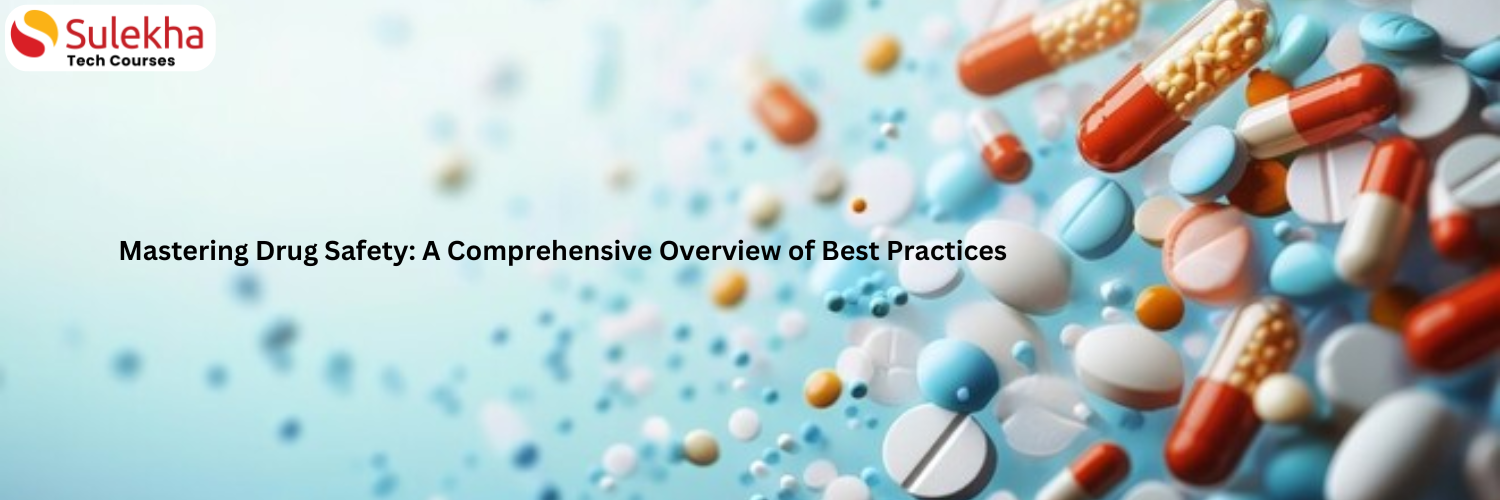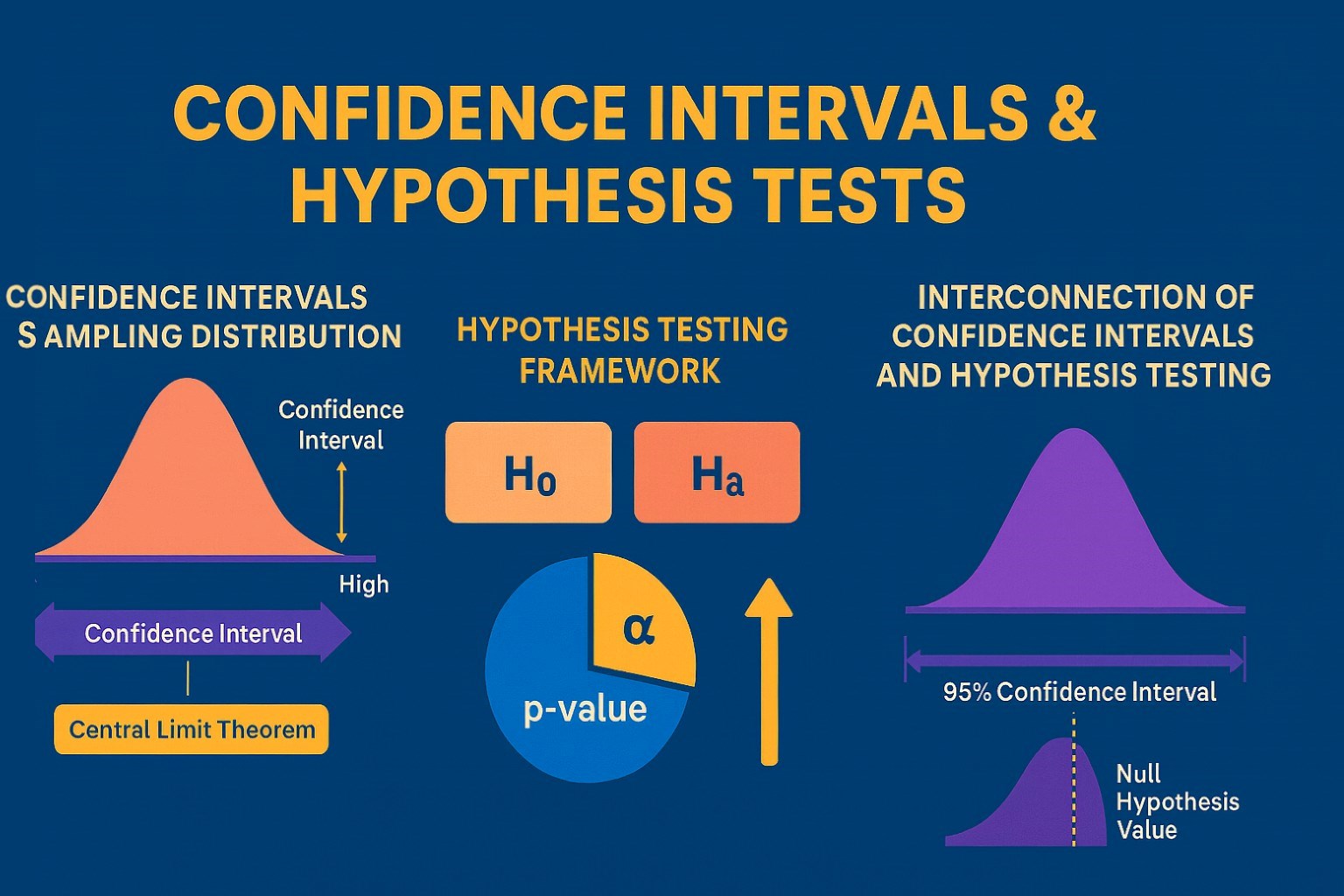Career opportunities in pharmacovigilance

Every day, millions of people rely on drugs to treat, manage, or prevent various health conditions. But how do we ensure these medications are safe and effective for all patients? That is where pharmacovigilance comes in, a field dedicated to monitoring, assessing, and improving the safety of drugs throughout their lifecycle.
As a career, pharmacovigilance offers immense opportunities to make a real-world impact. Whether you are a student looking to enter the field or a professional seeking to transition into drug safety, you must be well-prepared. In this blog, we’ll explore the key skills, tools, and experiences needed to build a successful career in pharmacovigilance, as well as why this growing sector offers a fulfilling career path for those passionate about science and patient safety.
Current job opportunities in the USA
Here is a look at some exciting career opportunities in the healthcare and life sciences industry across the United States:
Katalyst Healthcares & Life Sciences- Medical Monitor- Dunellen, NJ
Bausch + Lomb- Social Media Coordinator- Rochester, NY
Zenith LifeScience LLC- Medical Reviewer (Pharmacovigilance)- Nutley, NJ
Navitas Life Sciences- Junior MICC Associate- Princeton, NJ
Pfizer- Safety Surveillance Associate- Collegeville, PA
Cognizant- Medical Services Specialist - Remote- Tampa, FL
Gan & Lee Pharmaceuticals- Pharmacovigilance-2025- Bridgewater, NJ
Takeda Pharmaceutical- R&D Quality Services Improvement Leader- Lexington, MA
Katalyst Healthcares & Life Sciences- Clinical Regulatory Coordinator/ Specialist- Belmont, MA
Prometrika LLC- Medical Writer I- Cambridge, MA
Genentech- Pharmacovigilance ICSR Scientist- San Francisco, CA
GSK- Pharmacovigilance Quality Auditor- Durham, NC
Overall Career opportunities
Pharmacovigilance offers a range of positions focused on drug safety and regulation. Common roles include Drug Safety Associate, Drug Safety Scientist, and Drug Safety Manager or Director. Additionally, positions like Pharmaceutical Information Specialist play a key role in monitoring drug safety. There are also administrative and technical writing roles that support pharmacovigilance activities. These positions ensure the safety and efficacy of medications throughout their lifecycle.
Now, we shall discuss entry-level to advanced-level job opportunities in pharmacovigilance.
Entry-level job opportunities
Entry-level graduates can begin their careers in pharmacovigilance by joining pharmaceutical companies, contract research organizations (CROs), or regulatory agencies. These positions provide a solid drug safety foundation and offer hands-on industry experience. Typical entry-level roles include data entry, report preparation, and case processing. These roles teach professionals about adverse event reporting, risk assessment, and regulatory requirements. Over time, individuals can advance to more specialized positions within pharmacovigilance.
Job Opportunities for professionals
With experience and expertise, professionals can advance to higher roles in pharmacovigilance. These include positions like Pharmacovigilance Officer, Safety Manager, or Drug Safety Consultant. They may progress into leadership roles such as Pharmacovigilance Team Leader or Director as they gain more specialized knowledge. These positions require technical expertise and strong leadership and managerial skills. Successful progression often involves taking on larger responsibilities, managing teams, and shaping drug safety strategies.
Professionals can significantly enhance their career prospects by obtaining certifications like the Certified Professional in Pharmacovigilance (CPPV). Additionally, attending specialized training programs in risk management and signal detection helps build expertise. These certifications and training programs demonstrate a commitment to professional growth and improve job competitiveness. They also provide deeper insights into regulatory compliance, drug safety assessments, and emerging trends in pharmacovigilance. Such qualifications can open doors to higher-level roles and opportunities in the field.
Salary and Job Satisfaction in Pharmacovigilance
Pharmacovigilance offers competitive salaries and high job satisfaction due to its critical role in ensuring drug safety. Below is an overview of the salary details for both entry-level and advanced-level positions in pharmacovigilance:
Entry-Level Salary (Pharmacovigilance Associate/Coordinator)
Average Salary: $55,000 - $75,000 per year
Salary Range:
Entry-Level (0-2 years of experience): $50,000 - $65,000
Mid-Level (2-5 years of experience): $60,000 - $75,000
Advanced-Level Salary (Pharmacovigilance Officer/Safety Manager)
Average Salary: $90,000 - $130,000 per year
Salary Range:
Mid-Level (5-8 years of experience): $80,000 - $100,000
Senior-Level (8+ years of experience): $100,000 - $130,000+
Job Satisfaction
High Job Satisfaction: Pharmacovigilance professionals generally report high job satisfaction due to the meaningful work of ensuring patient safety and improving public health. The ability to impact drug safety practices and the growing demand for pharmacovigilance professionals contribute to job fulfillment.
Career Growth: With the opportunity to move into leadership roles such as Pharmacovigilance Team Leader or Director, professionals in the field often experience strong career growth, increasing job satisfaction and salary potential.
Few Certifications in Pharmacovigilance
Entry-Level Certifications:
1. Certified Pharmacovigilance Professional (CPPV)
2. Pharmacovigilance Certification (PVI)
3. Drug Safety and Pharmacovigilance Certification (by DIA)
4. Medical Writing in Drug Safety Certification (by EMWA)
5. Basic Pharmacovigilance Training (by U.S. FDA)
Advanced-Level Certifications:
1. Advanced Pharmacovigilance Certification (by DIA)
2. Certified Clinical Research Professional (CCRP)
3. Global Pharmacovigilance Certification (by ISoP)
4. Risk Management and Signal Detection Certification
5. Drug Safety Management (by ACRP)
Skills Required for a Career in Pharmacovigilance
Technical Skills:
1. Knowledge of Regulatory Guidelines (e.g., ICH, FDA, EMA)
2. Adverse Event Reporting and Case Processing
3. Signal Detection and Risk Management
4. Pharmacology and Clinical Safety Knowledge
5. Data Analysis and Statistical Tools (e.g., SAS, R)
6. Drug Safety Databases (e.g., Argus, Veeva Vault)
7. Medical Writing for regulatory reports and documentation
8. Understanding of Medical Terminology and Clinical Trials
Soft Skills:
1. Attention to Detail
2. Critical Thinking and Problem-Solving
3. Communication Skills (verbal and written)
4. Team Collaboration and Interpersonal Skills
5. Time Management and Multitasking
6. Adaptability and Learning Agility
7. Ethical Decision-Making and Integrity
In conclusion, pharmacovigilance plays a critical role in ensuring the safety and effectiveness of medications for patients worldwide. By pursuing a career in this field, professionals can contribute to public health while gaining valuable skills and experience. With growing demand and diverse career opportunities, pharmacovigilance offers a rewarding and impactful career path.
Find a course provider to learn Drug Safety and Pharmacovigilance
Java training | J2EE training | J2EE Jboss training | Apache JMeter trainingTake the next step towards your professional goals in Drug Safety and Pharmacovigilance
Don't hesitate to talk with our course advisor right now
Receive a call
Contact NowMake a call
+1-732-338-7323Enroll for the next batch
pharmacovigilance course
- Dec 22 2025
- Online
pharmacovigilance course
- Dec 23 2025
- Online
pharmacovigilance course
- Dec 24 2025
- Online
pharmacovigilance course
- Dec 25 2025
- Online
pharmacovigilance course
- Dec 26 2025
- Online
Related blogs on Drug Safety and Pharmacovigilance to learn more

Understanding Drug Safety Practices: A Comprehensive Guide
Drug safety is not just a routine, it's a lifeline in the healthcare and pharmaceutical industries. It ensures that medications are not just used but used effectively and safely. This involves monitoring, assessing, and managing the risks associated

What is the significance of Pharmacovigilance in today’s healthcare industry?
The process involved in pharmacovigilance involves the wide understanding of requirements can be daunting even for seasoned industry pros.

Understanding About Drug Safety And Pharmacovigilance
Pharmacovigilance or Drug Safety is related to collection, detection, monitoring, assessment and prevention of adverse effects associated with pharmaceutical products. It is an important component which comes under effective drug regulation system. H
Latest blogs on technology to explore

From Student to AI Pro: What Does Prompt Engineering Entail and How Do You Start?
Explore the growing field of prompt engineering, a vital skill for AI enthusiasts. Learn how to craft optimized prompts for tools like ChatGPT and Gemini, and discover the career opportunities and skills needed to succeed in this fast-evolving indust

How Security Classification Guides Strengthen Data Protection in Modern Cybersecurity
A Security Classification Guide (SCG) defines data protection standards, ensuring sensitive information is handled securely across all levels. By outlining confidentiality, access controls, and declassification procedures, SCGs strengthen cybersecuri

Artificial Intelligence – A Growing Field of Study for Modern Learners
Artificial Intelligence is becoming a top study choice due to high job demand and future scope. This blog explains key subjects, career opportunities, and a simple AI study roadmap to help beginners start learning and build a strong career in the AI

Java in 2026: Why This ‘Old’ Language Is Still Your Golden Ticket to a Tech Career (And Where to Learn It!
Think Java is old news? Think again! 90% of Fortune 500 companies (yes, including Google, Amazon, and Netflix) run on Java (Oracle, 2025). From Android apps to banking systems, Java is the backbone of tech—and Sulekha IT Services is your fast track t

From Student to AI Pro: What Does Prompt Engineering Entail and How Do You Start?
Learn what prompt engineering is, why it matters, and how students and professionals can start mastering AI tools like ChatGPT, Gemini, and Copilot.

Cyber Security in 2025: The Golden Ticket to a Future-Proof Career
Cyber security jobs are growing 35% faster than any other tech field (U.S. Bureau of Labor Statistics, 2024)—and the average salary is $100,000+ per year! In a world where data breaches cost businesses $4.45 million on average (IBM, 2024), cyber secu

SAP SD in 2025: Your Ticket to a High-Flying IT Career
In the fast-paced world of IT and enterprise software, SAP SD (Sales and Distribution) is the secret sauce that keeps businesses running smoothly. Whether it’s managing customer orders, pricing, shipping, or billing, SAP SD is the backbone of sales o

SAP FICO in 2025: Salary, Jobs & How to Get Certified
AP FICO professionals earn $90,000–$130,000/year in the USA and Canada—and demand is skyrocketing! If you’re eyeing a future-proof IT career, SAP FICO (Financial Accounting & Controlling) is your golden ticket. But where do you start? Sulekha IT Serv

Train Like an AI Engineer: The Smartest Career Move You’ll Make This Year!
Why AI Engineering Is the Hottest Skillset Right Now From self-driving cars to chatbots that sound eerily human, Artificial Intelligence is no longer science fiction — it’s the backbone of modern tech. And guess what? Companies across the USA and Can

Confidence Intervals & Hypothesis Tests: The Data Science Path to Generalization
Learn how confidence intervals and hypothesis tests turn sample data into reliable population insights in data science. Understand CLT, p-values, and significance to generalize results, quantify uncertainty, and make evidence-based decisions.